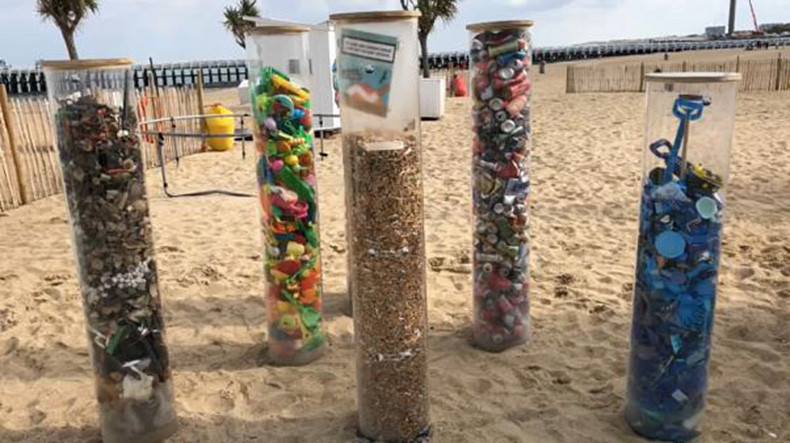
More plastic than fish: beach cleanup highlights Europe's plastic problem
Taking time out of the classroom to clean this Belgian beach – the task of some 1,300 young school-goers gathered here in the city of Ostend. For the UN, its a crucial, educational day out.
"It is important that they contribute individually to cleaning up the plastic. 8 million tonnes of plastic annually ends up in the sea. It is everywhere around us," Veronika Hunt Šafránková, Head of the UN Environment, Brussels Office tells Euronews.
One young woman who sees marine pollution on a regular basis is this world champion Belgian sailor Emma Plasschaert. The 25 year old from Ostend tells me what training in Rio de Janeiro back in 2016 was like.
"It was a daily encounter of a lot of plastic, but first of all plastic bag and things you would expect to see, but also, garden furniture, closets and freezers and fridges, tables, chairs, it is hallucinating," Emma Plasschaert, Belgian world champion sailor tells our reporter.
Along with plastic, cigarette butts are the oceans largest source of pollution in Europe. For the UN, governments need to more to implement legislation, whilst individuals also have a roll to play.
"Individually, we can make a difference as well, we have can consume less, we have a big footprint ad producers produce less plastic, reuse, recycle, and dont use plastic if not necessary to do so," says Šafránková.
Experts warn that if nothing is done, the ocean could contain more plastic than fish by 2050, so it may take more than this fun day out to bring about clean beaches in Europe.
Newsfeed
Videos






























